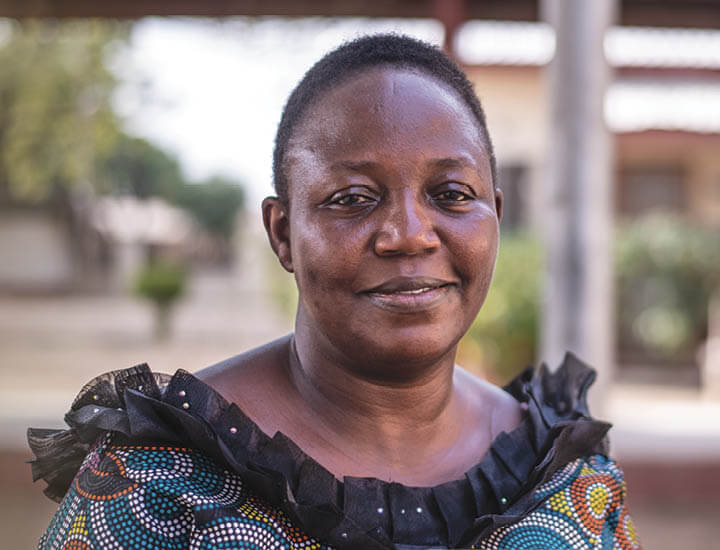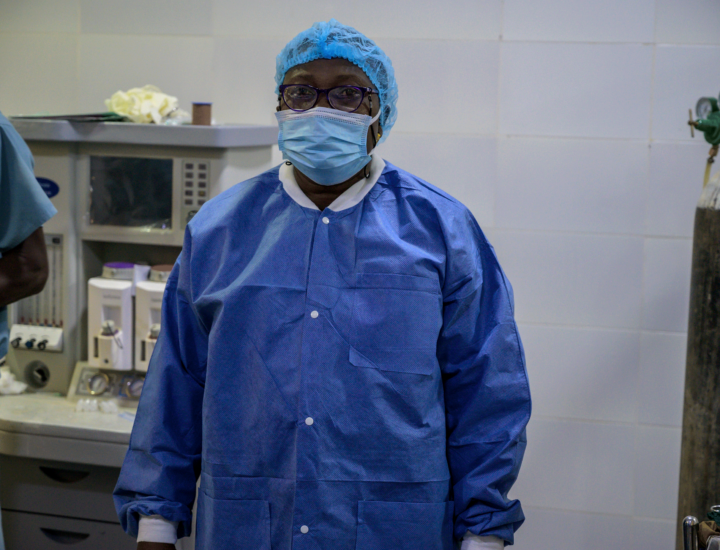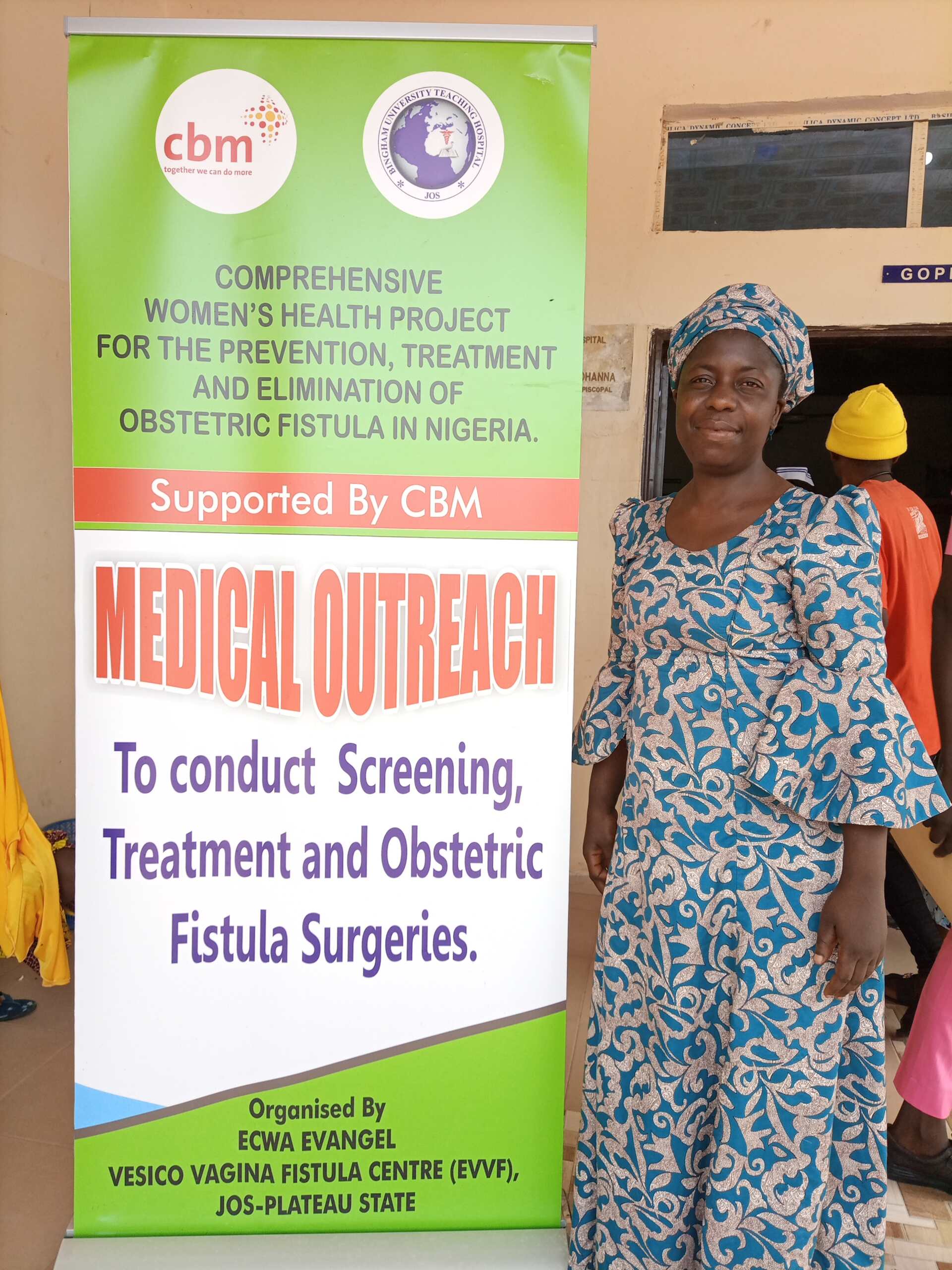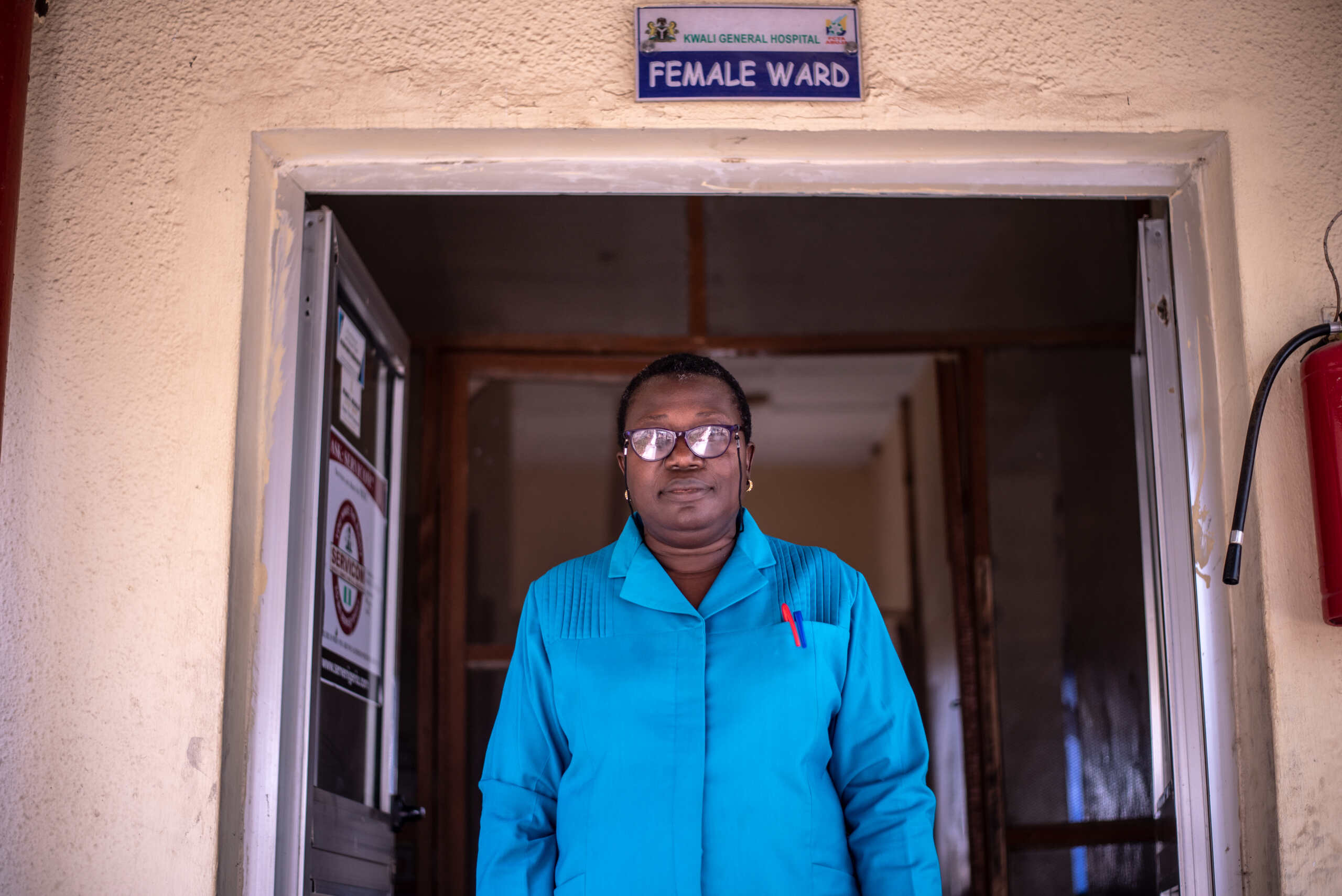What is obstetric fistula?
An obstetric fistula is a devastating childbirth injury that occurs during prolonged, obstructed labour when an unborn baby’s head puts too much pressure on the birth canal, cutting off the blood flow. The maternal soft tissue dies and leaves a hole between the woman’s genital tract, urinary tract, and/or rectum. This hole, or fistula, can cause chronic incontinence where urine and sometimes faeces leak uncontrollably.
Types of obstetric fistula
The two most common types of obstetric fistulas are vesicovaginal and rectovaginal. Both are devastating injuries that cause acute emotional distress and severely impact quality of life.
- Vesicovaginal fistula: An obstetric vesicovaginal fistula is an opening between the vagina and the bladder that shouldn’t exist, and results in urine leaking from the vagina
- Rectovaginal fistula: Rectovaginal fistulas are an abnormal opening between the vagina and the anus or large intestine, which allows faecal matter to pass through the vagina.
Effects of obstetric fistula on women
An untreated obstetric fistula can leave a woman suffering from faecal and urinary incontinence, leaving her feeling humiliated and outcast by her community.
Women with obstetric fistula are also at higher risk of conditions such as urinary tract infections (UTIs), renal failure, vaginal scarring, vaginal stenosis, infertility, and maternal mortality.
According to a report on fistula prevention and management by the World Health Organisation, obstetric fistula is a largely preventable tragedy. The risk of fistula can be reduced by factors such as having timely access to medical care, delaying the age of first pregnancy, and ending harmful traditional practices such as female genital mutilation (FGM) of young girls.

How CBM helps women with fistula
Women living in poor communities often lack access to affordable, quality, and sustainable maternal and obstetric care. As a result, many women give birth at home or in health centres that operate with limited and basic medical equipment and supplies. This increases their risk of vaginal fistula and other childbirth injuries.
Our work in Nigeria
In Nigeria, CBM is working to improve access of women and girls to sexual and reproductive health services in poor and remote communities. Working alongside local partners, we are helping raise awareness about the importance of good maternal healthcare, train local health workers to identify high‑risk pregnancies and refer those women to hospitals for medical interventions, and support women with livelihood opportunities. Through this work, we aim to prevent obstetric fistula and other injuries caused by maternal birth trauma, and improve maternal health outcomes.
In Nigeria, around 150,000 women are living with this treatable and preventable condition, and more than a million women in total in developing countries in sub-Saharan Africa. Virtually non-existent in high-income countries, poverty, lack of knowledge of and access to quality healthcare access and cultural practices put women and girls living in poor and rural communities at greater risk.

Strengthening the local health system in Nigeria means staff like Nurse Victoria are better able to provide needed support to fistula patients.
Emelda, Head of Nursing Services at one of CBM’s partner hospitals, talks about how CBM helps women in Nigeria to heal from a fistula.
“Women who have lost their baby during childbirth and then are diagnosed with a fistula need our help and love more than anyone.
“They might hide for years and years. Sometimes their husbands abandon them, leaving these vulnerable women to fend for themselves. Their communities may also reject and stigmatise them.
“Trained midwives, doctors and healthcare workers will help identify problems during prolonged labour. They will help to deliver the baby safely, and to treat women with a fistula. They will also help to inform, educate and spread awareness of this condition, so women and girls do not need to feel isolated and alone.
“I’ve seen firsthand the difference your compassionate support has made to maternal healthcare programs for women.”
How you can help
Your support can help improve access to maternal health services for expectant mothers, and health and family planning education for women and girls.
Your gift will help:
- Train healthcare workers in the identification, management and referral of women with fistula for surgical intervention and treatment
- Offer greater surgical outreach to facilitate access to treatments and prevent maternal deaths
- Create advocacy and community awareness on maternal and child health services
- Provide obstetric fistula information, as well as guidance on fistula prevention and fistula treatment options
- Promote and support emergency obstetric care and obstetric fistula repair surgery



